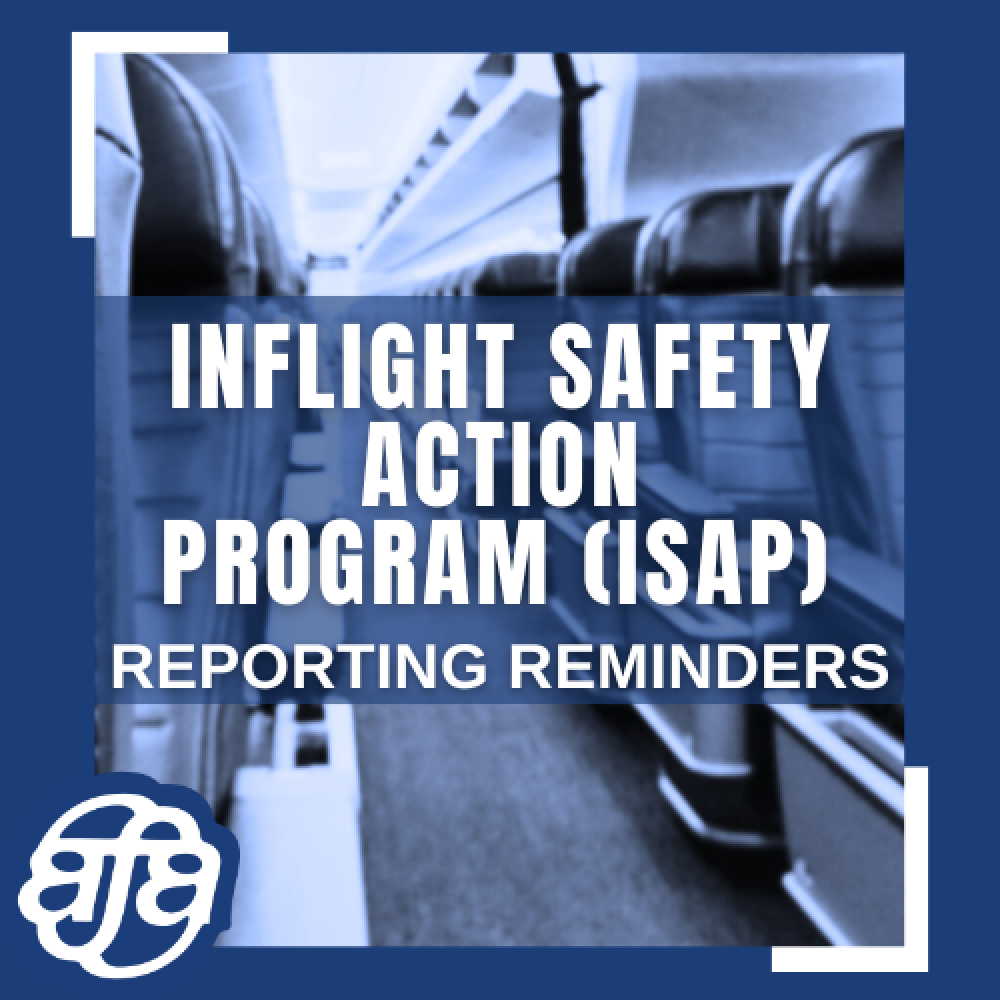
The Inflight Safety Action Program (ISAP) is a non-punitive and confidential voluntary safety reporting program intended to identify safety concerns and hazards. This program offers a just-culture environment to report inadvertent violations of FAA regulations and company safety policies (SOP).
Examples: Flying with a non-compliant Link device, incorrect placarding, failing to complete an exit row briefing before pushback, missing or incorrect safety equipment, forgetting to disarm a door after arrival that is corrected by another flight attendant (i.e., near miss), etc.
Our reporting is defined by the support or action we are seeking. ISAP reporting should be communicating a safety hazard, safety concern, or to report an inadvertent violation of FAA regulations or company safety policies (SOPs).
ISAP is not intended for reporting events that belong in another reporting system or program. Examples include:
- Fatigue-related concerns should be reported through the Flight Attendant Fatigue Risk Management Program (FA-FRMP).
- Issues not related to safety or security, such as catering or service-related concerns go to United Voices.
- Use IOR to document a safety or security issue that may require follow-up from the company or the FAA such as medical emergencies, issues related to alcohol or incidents of non-compliance onboard.
- Use the AFA Union First EAP/Professional Standards Committee to address concerns over, or a conflict with, another crewmember. Any interpersonal issues, different workstyles, or a concern related to another crewmember’s performance should be handled through the AFA EAP/Professional Standards Committee.
Please keep in mind when filing an ISAP these reports may take time to process. Concerns that happen in the moment should be addressed in the moment using CRM and SOPs. Remember that ISAP reports are de-identified thus concerns of an individual either passenger or co-worker may not be resolved via this reporting. Similarly, IORs with passenger concerns are handed off to the FAA for disposition.
At the end of the day, the safety of our crew, passengers, and aircraft depends on how well we adhere to our safety responsibilities and processes. For this reason, we want to close by expressing the importance of not only reporting but communication. In the moment, communication with each other may resolve your concerns. Always try to communicate first.
If you ever have a question, comment, or concern related to any safety concern, and do not know what the best way would be to report, please reach out to your local LEC Safety, Health & Security Committee for help.
As always thank you for your continuing support of the ISAP program! We can make our voices heard and safety changes made, through the data you report!
